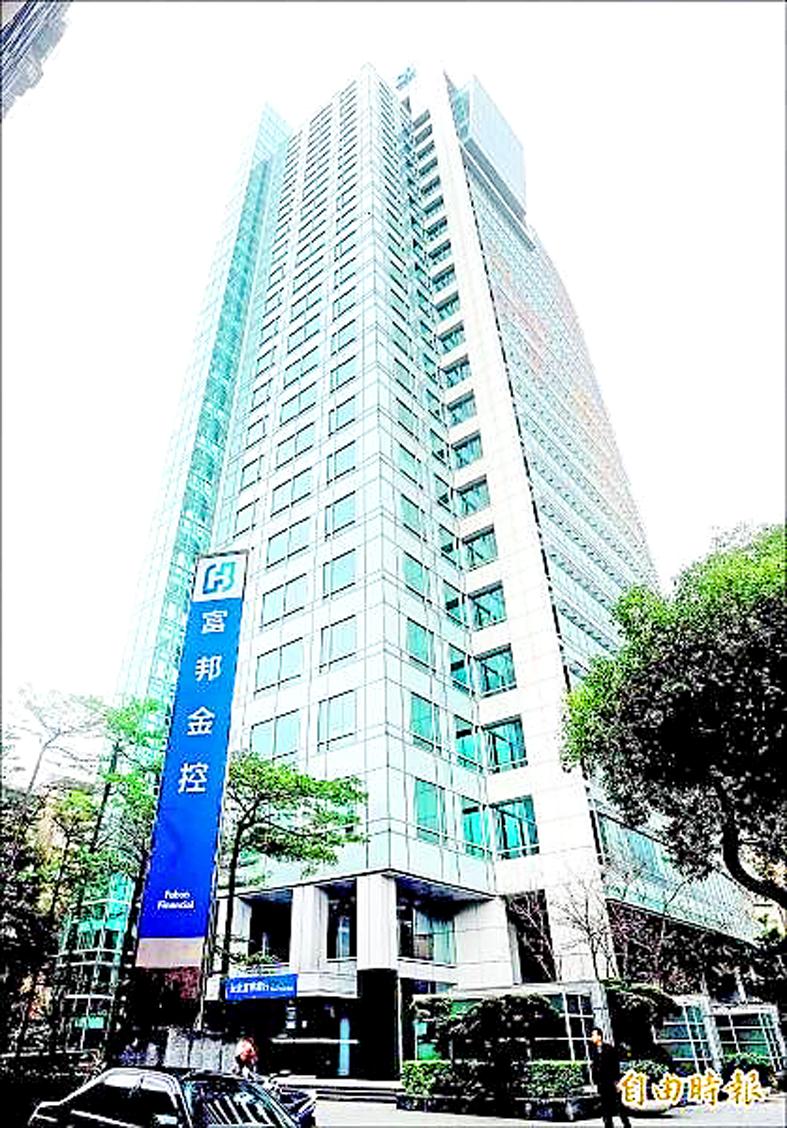Fubon Financial Holding Co (富邦金控), which last week acquired 53.84 percent of Jih Sun Financial Holding Co (日盛金控), yesterday said it plans to buy the remaining 46.16 percent stake in the third quarter and complete the merger by the end of this year.
It would again offer NT$13 per Jih Sun share, the same as its previous public tender offer, to be fair to all Jih Sun shareholders, Fubon Financial president Jerry Harn (韓蔚廷) told an investors’ conference in Taipei.
Having acquired majority control of Jih Sun Financial, Fubon Financial on Tuesday started to recognize its peer’s profits, but operations integration would take more time, Harn said.

Photo: Lin Cheng-kun, Taipei Times
Fubon Financial would start by merging Jih Sun Financial with its operations by the end of this year, then integrate its banking, securities and futures units into Fubon’s arms by the end of next year, he said.
Jih Sun Financial would cease to exist at the end of this year, but Jih Sun International Bank (日盛銀行), Jih Sun Securities Co (日盛證券) and Jih Sun Futures Co (日盛期貨) would continue operating until they become part of Taipei Fubon Commercial Bank (台北富邦銀行), Fubon Securities Co (富邦證券) and Fubon Futures Co (富邦期貨) respectively next year, he said.
“The consolidation of the banking units and securities arms involves dealing with different information systems and employees from both sides. We need to be more cautious,” Harn said.
Although some of Jih Sun Bank’s and Taipei Fubon Bank’s branches overlap in some areas, they would not necessarily be closed, Harn said.
“We would take this opportunity to expand our presence in the countryside and southern Taiwan,” he said.
Even though some branches would be closed eventually, it does not mean that Jih Sun employees would be dismissed, Harn said, adding that Fubon Financial would protect workers’ rights.
“Fubon Financial has conducted many small and big mergers and acquisitions over the past 20 years, and we have never had major labor disputes. Many of our top managers were from the target companies we acquired,” Harn said.
The acquisition is expected to improve Fubon Financial’s efficiency and cost management, as well as boost its revenue, he said.
The deal would raise Fubon Securities’ market share from 5.57 percent at the end of last year to 9.14 percent after absorbing Jih Sun Securities, which would make it the second-largest securities firm after Yuanta Securities Co (元大證券), it said.
Fubon Futures’ market share would also rise from 2.6 percent to 5.23 percent, with its ranking moving from ninth to fifth, while Taipei Fubon Bank’s number of branches would expand to 174, ranking it first, followed by Cathay United Bank (國泰世華銀行) with 164, it said.
Harn also announced that Fubon Financial’s planned cash dividend payout ratio this year would be similar to last year’s 36.63 percent.
That would imply a cash dividend of NT$3.12 per share, based on the company’s record earnings per share of NT$8.54 last year.

MULTIFACETED: A task force has analyzed possible scenarios and created responses to assist domestic industries in dealing with US tariffs, the economics minister said The Executive Yuan is tomorrow to announce countermeasures to US President Donald Trump’s planned reciprocal tariffs, although the details of the plan would not be made public until Monday next week, Minister of Economic Affairs J.W. Kuo (郭智輝) said yesterday. The Cabinet established an economic and trade task force in November last year to deal with US trade and tariff related issues, Kuo told reporters outside the legislature in Taipei. The task force has been analyzing and evaluating all kinds of scenarios to identify suitable responses and determine how best to assist domestic industries in managing the effects of Trump’s tariffs, he

TIGHT-LIPPED: UMC said it had no merger plans at the moment, after Nikkei Asia reported that the firm and GlobalFoundries were considering restarting merger talks United Microelectronics Corp (UMC, 聯電), the world’s No. 4 contract chipmaker, yesterday launched a new US$5 billion 12-inch chip factory in Singapore as part of its latest effort to diversify its manufacturing footprint amid growing geopolitical risks. The new factory, adjacent to UMC’s existing Singapore fab in the Pasir Res Wafer Fab Park, is scheduled to enter volume production next year, utilizing mature 22-nanometer and 28-nanometer process technologies, UMC said in a statement. The company plans to invest US$5 billion during the first phase of the new fab, which would have an installed capacity of 30,000 12-inch wafers per month, it said. The

‘SWASTICAR’: Tesla CEO Elon Musk’s close association with Donald Trump has prompted opponents to brand him a ‘Nazi’ and resulted in a dramatic drop in sales Demonstrators descended on Tesla Inc dealerships across the US, and in Europe and Canada on Saturday to protest company chief Elon Musk, who has amassed extraordinary power as a top adviser to US President Donald Trump. Waving signs with messages such as “Musk is stealing our money” and “Reclaim our country,” the protests largely took place peacefully following fiery episodes of vandalism on Tesla vehicles, dealerships and other facilities in recent weeks that US officials have denounced as terrorism. Hundreds rallied on Saturday outside the Tesla dealership in Manhattan. Some blasted Musk, the world’s richest man, while others demanded the shuttering of his

Taiwan’s official purchasing managers’ index (PMI) last month rose 0.2 percentage points to 54.2, in a second consecutive month of expansion, thanks to front-loading demand intended to avoid potential US tariff hikes, the Chung-Hua Institution for Economic Research (CIER, 中華經濟研究院) said yesterday. While short-term demand appeared robust, uncertainties rose due to US President Donald Trump’s unpredictable trade policy, CIER president Lien Hsien-ming (連賢明) told a news conference in Taipei. Taiwan’s economy this year would be characterized by high-level fluctuations and the volatility would be wilder than most expect, Lien said Demand for electronics, particularly semiconductors, continues to benefit from US technology giants’ effort